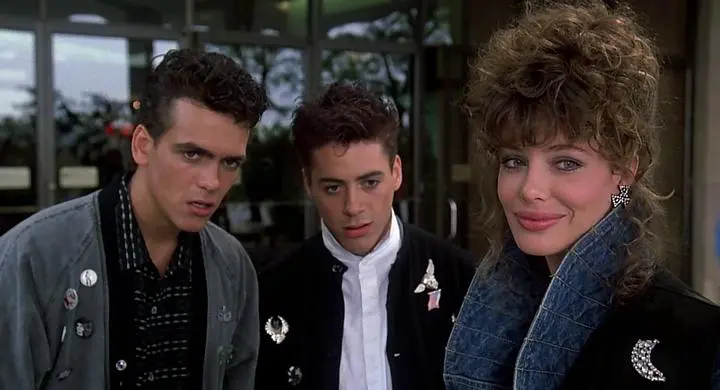That sneer. You know the one.
Robert Rusler perfected it in 1985's Weird Science, refined it in A Nightmare on Elm Street 2, and weaponised it as Tommy Hook in Thrashin'. For a brief moment in the mid-80s, Rusler was everywhere—the guy you loved to hate, the antagonist who made movies better just by showing up.
Then something interesting happened. While other 80s teen idols chased leading man roles and crashed, Rusler quietly became one of Hollywood's most dependable character actors. Four decades later, he's still working, still creating memorable characters, and somehow still looks like he could run a skateboard gang.
But how did the bad boy of Thrashin' transform into television's most reliable guest star? And why did he choose steady work over superstardom?
The Early Years: Building the Perfect 80s Villain
Robert Rusler was born on September 20, 1965, in Fort Wayne, Indiana, but his path to Hollywood started in Hawaii. After moving to Waikiki Beach, he became a semi-professional surfer and skateboarder, competing in local tournaments. When his family relocated to Los Angeles, he traded waves for martial arts, entering competitions and developing the physicality that would define his screen presence.
Acting wasn't the plan initially. But right out of high school, something clicked. Rusler began studying at the prestigious Loft Studio with Peggy Feury and William Traylor—the same coaches who trained actors like Cher and Sally Field.
His first break came in 1985 with a recurring role on The Facts of Life, playing a boarding school student. But that same year, lightning struck twice.
1985: The Year That Changed Everything
Two auditions. Two iconic roles. Two movies that would define 80s cinema.
First came Weird Science, where John Hughes cast him as Max, the arrogant bully who terrorizes Anthony Michael Hall and Ilan Mitchell-Smith. Rusler brought a perfect balance of menace and comedy to the role, creating a villain you could almost root for.
"Max was written as a one-dimensional antagonist," Rusler later reflected, "but I wanted to find the insecurity underneath the swagger."
Months later, he landed Ron Grady in A Nightmare on Elm Street 2: Freddy's Revenge. Working alongside Robert Englund and Mark Patton, Rusler helped create what many consider the most controversial entry in the Nightmare franchise.
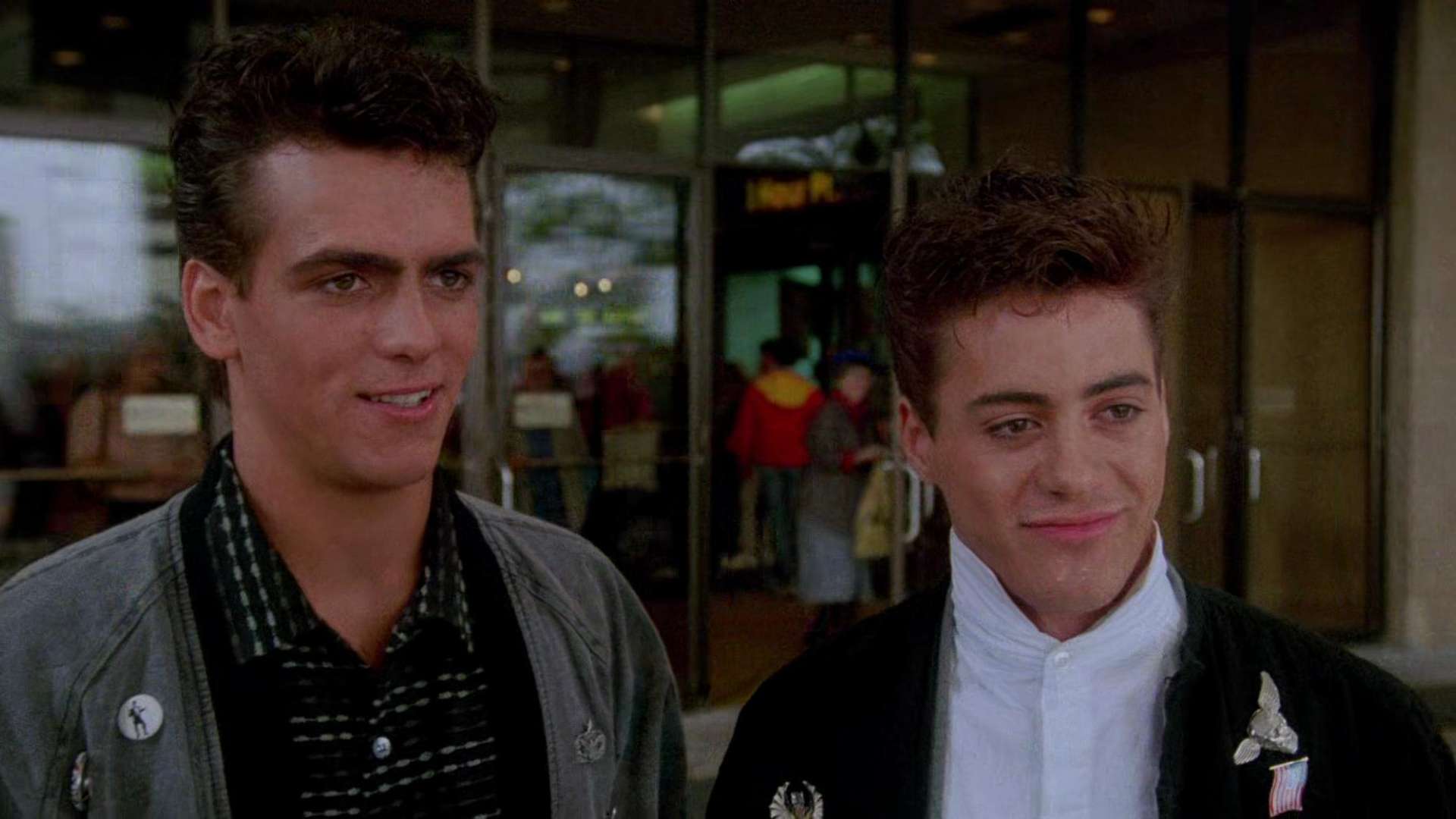
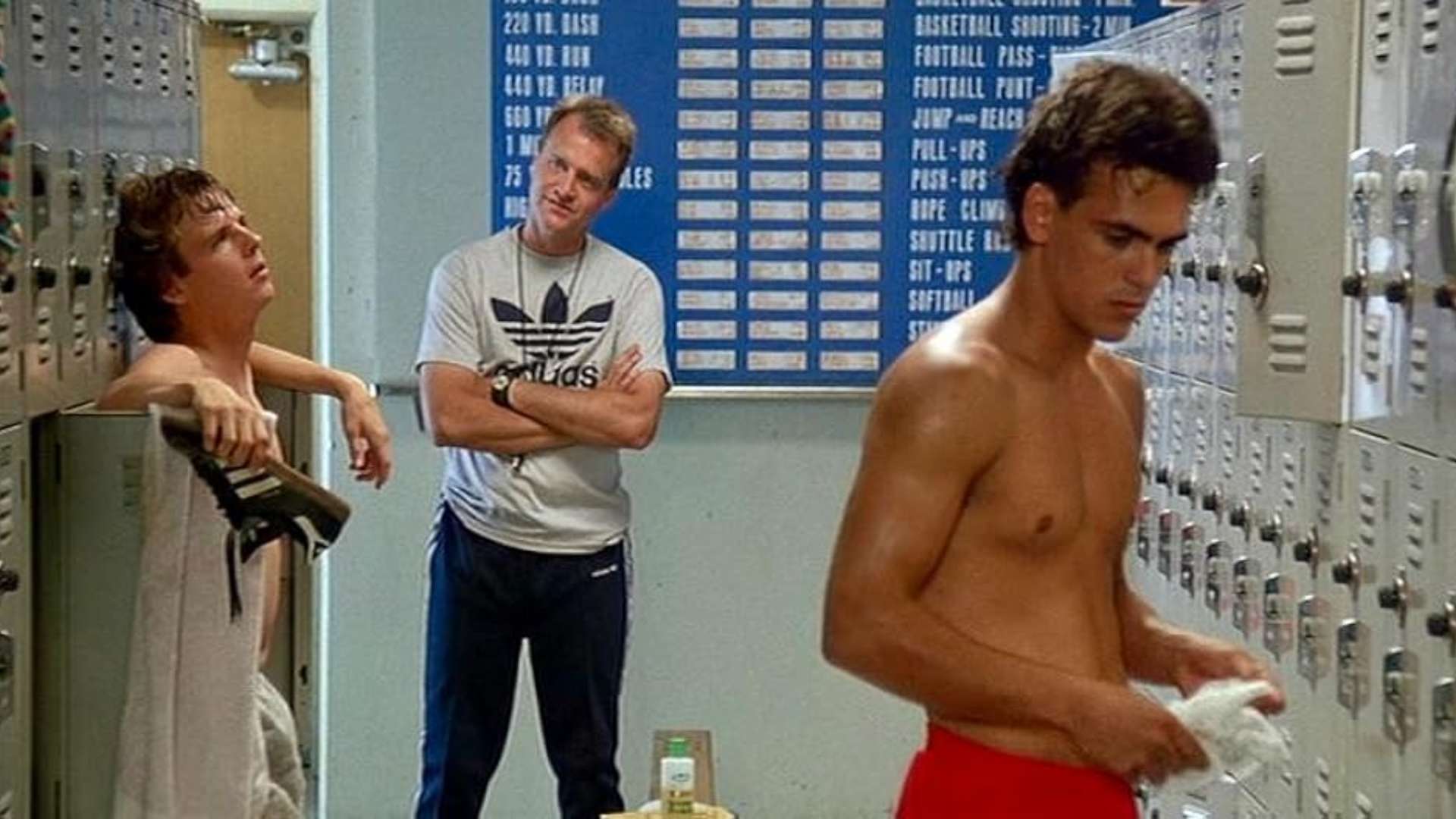
Left: Robert Rusler and Robert Downey Jr. in Weird Science / Right: Robert Rusler in A Nightmare on Elm Street 2: Freddy's Revenge (1985)
These back-to-back roles established his screen persona: the cool, athletic antagonist with just enough charm to make you question who the real hero was.
Thrashin': The Role That Almost Went to Johnny Depp
In 1986, David Winters was casting the lead villain for his skateboarding epic Thrashin'. His first choice? Johnny Depp, who was set to star alongside girlfriend Sherilyn Fenn.
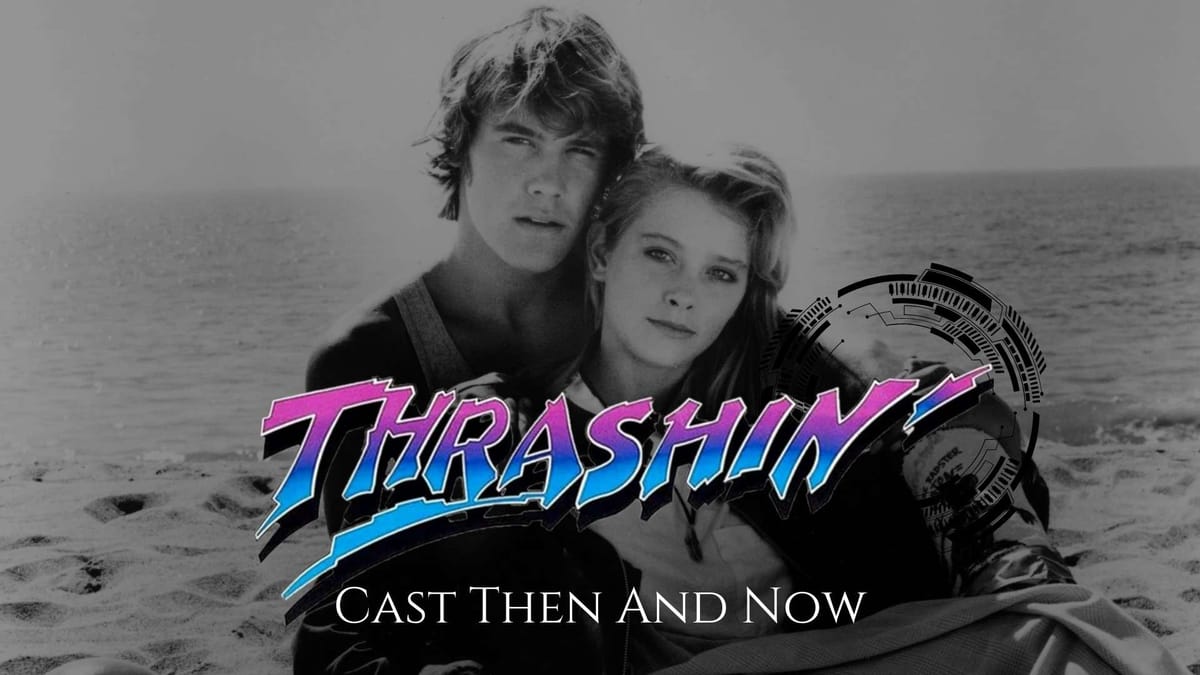
But producer Alan Sacks had reservations. When Depp walked into the audition and shook hands, Sacks felt the handshake was "too wimpy" for the leader of the Daggers gang. After three attempts to get Depp approved failed, Winters turned to Robert Rusler.
"I think it was a perfect choice," Winters later said. "Rusler had an edginess that created just enough intimidation factor, plus he just oozed Dagger charm."
Rusler's Tommy Hook became one of cinema's most memorable skateboard villains. He could actually skate (unlike many actors in the film), allowing Winters to capture authentic action sequences with the character truly on the board.
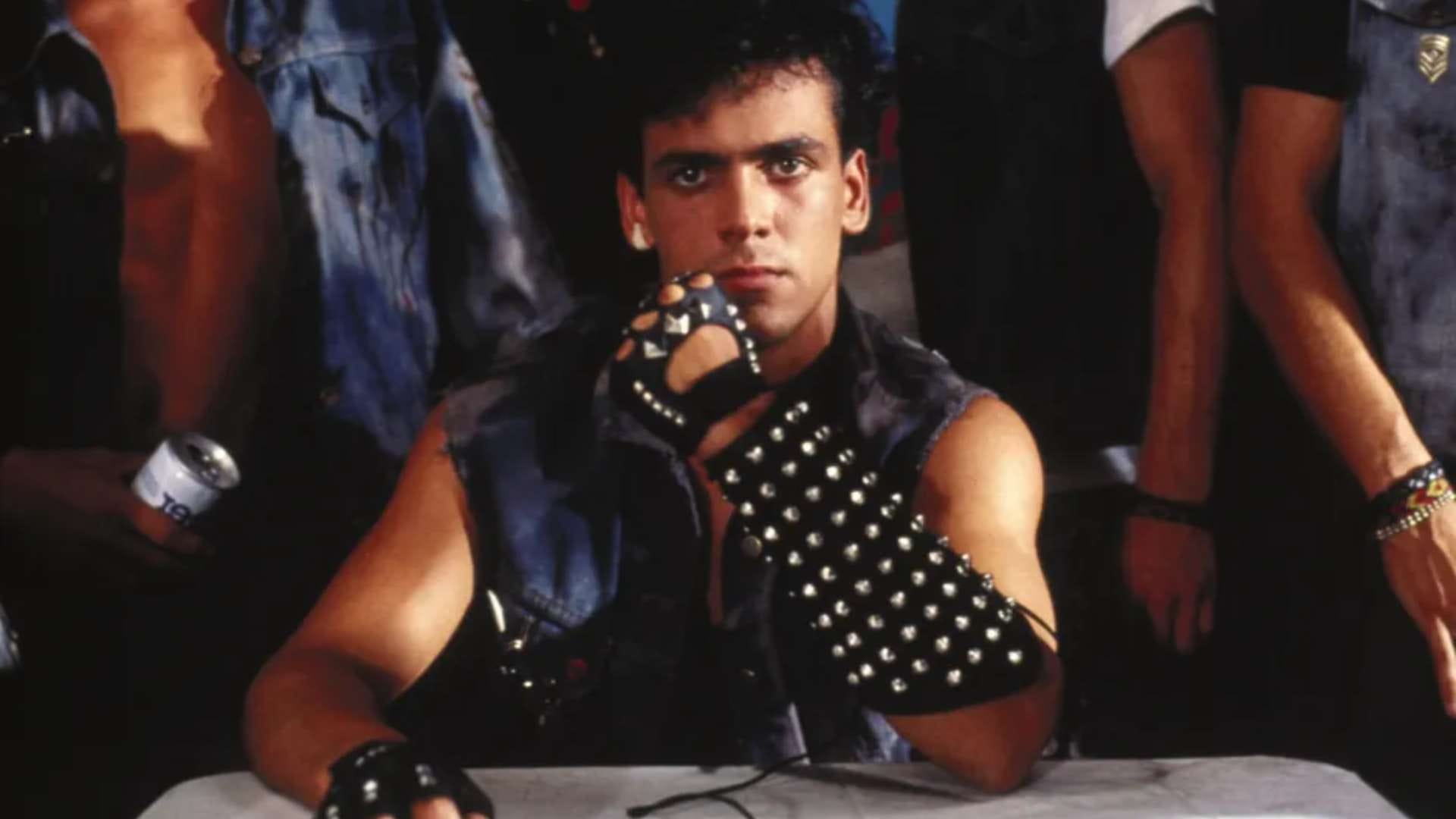
The role showcased Rusler's ability to make one-dimensional villains feel three-dimensional. Hook could have been a cartoon, but Rusler found the wounded pride beneath the punk rock exterior.
The Choice: Leading Man or Character Actor?
By 1987, Robert Rusler faced the crossroads every young actor encounters: chase leading man status or embrace character work.
He chose character work. And it was brilliant.
Instead of competing with Tom Cruise and Patrick Swayze for romantic leads, Rusler built a reputation as the guy who elevated every project he touched. Vamp (1986) with Grace Jones. Shag (1989) with Phoebe Cates. Each role added another layer to his growing reputation.
"I realised early that I wasn't going to be the romantic lead," Rusler admitted in a 2016 interview. "But I could be the guy who made the romantic lead look better."
Television: Where Robert Rusler Found His Kingdom
The 1990s marked Rusler's transition to television, where he would build his most lasting legacy.
The Outsiders (1990): Coppola's Blessing
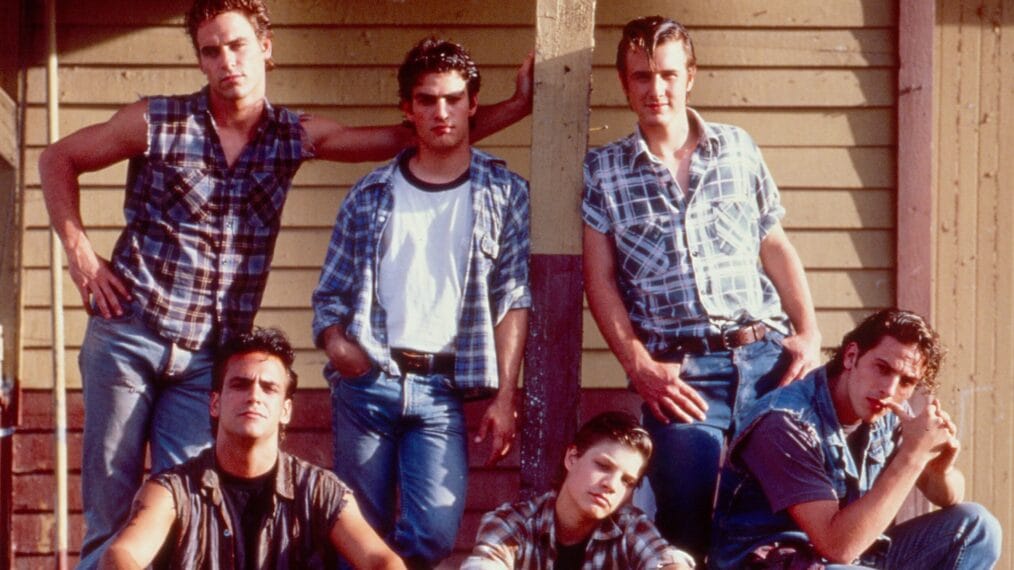
Francis Ford Coppola personally cast Rusler as Tim Shepard in the television adaptation of The Outsiders. Working for Coppola validated his choice to embrace character work over leading man pursuits.
"Francis saw something in me that I didn't see in myself," Rusler reflected. "He taught me that the best actors serve the story, not their ego."
Babylon 5 (1994-1995): Sci-Fi Stardom
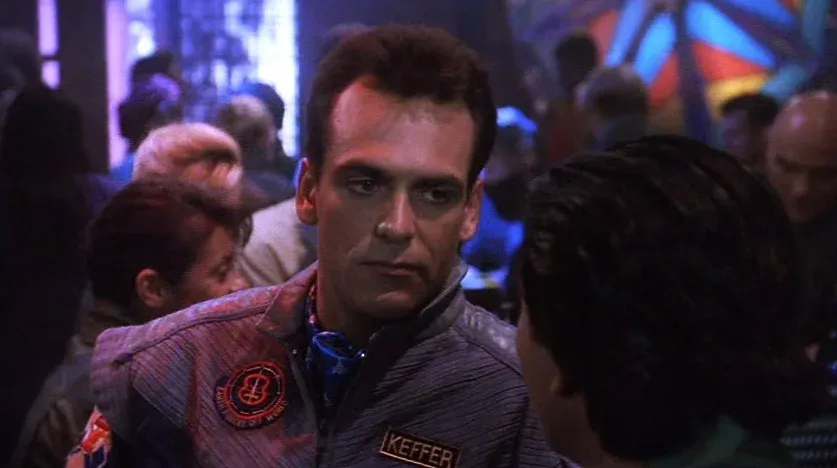
Rusler's role as Lieutenant Warren Keffer in Babylon 5 brought him international recognition and a devoted fanbase. The cult sci-fi series gave him his most substantial television role, and fans still approach him at conventions decades later.
"Babylon 5 fans are the most loyal in the world," Rusler says. "They remember every detail, every episode. It's humbling."
Stephen King's Sometimes They Come Back (1991)
Playing Richard Lawson opposite Tim Matheson in this Emmy-winning Stephen King adaptation showcased Rusler's dramatic range. The horror veteran proved he could handle psychological terror as effectively as supernatural scares.
The 2000s: Television's Most Reliable Guest Star
While many 80s actors struggled to find work in the new millennium, Robert Rusler became television's secret weapon. Casting directors knew they could count on him to deliver memorable performances in single episodes.
His guest appearances read like a greatest hits of quality television:
Action/Drama: 24 (as hitman Hank), The Unit, NCIS
Crime/Detective: Cold Case, The Closer, Medium
Sci-Fi: Star Trek: Enterprise (as alien Orgoth)
Each role was different. Each performance was memorable. Rusler had mastered the art of making one-episode characters feel like they'd been part of the show forever.
"Guest starring is an art form," he explained. "You have to understand the show's rhythm immediately and find your character's truth in limited time."
Behind the vanishing acts: Explore our full database of archival records and investigative profiles.
Recent Years: The Renaissance Continues
Robert Rusler's career has experienced a quiet renaissance in recent years, with steady film and television work proving his enduring appeal.
Recent Projects:
• Garden of Eden (2025) - Latest film project • Wine Thief (2024) - Character role • Jakob's Wife (2021) - Horror return alongside Barbara Crampton • Blood Feast (2016) - Horror remake as Fuad Ramses • General Hospital (2014-2015) - Daytime television recurring role
Horror Convention Circuit
Rusler has embraced the convention scene, appearing at events like Horror Realm 2025 where fans celebrate his contributions to 80s horror and sci-fi. These appearances have introduced him to new generations discovering his work through streaming platforms.
"The fans remember things about my performances that I'd forgotten," he says. "They keep these movies alive."
Personal Life: The Family Man Behind the Bad Boy
Behind the scenes, Robert Rusler has built something many Hollywood actors never achieve: a stable, happy family life. Married to Erin Louise Jellison, they have three sons—James, Charlie, and Johnny Ray Rusler.
His Instagram (@robertrusler) with over 9,500 followers shows a different side of the former skateboard gang leader: family vacations, behind-the-scenes photos, and glimpses of his life as a husband and father.
"The best role I've ever played is dad," he says, posting regular photos with his sons who share his love of outdoor sports and adventure.
The Secret to Longevity: Professionalism Over Ego
In an industry famous for crushing egos and ending careers, Robert Rusler discovered the secret to survival: professionalism.
"I show up prepared, I hit my marks, and I don't cause problems," he explains. "Directors remember that. Casting directors remember that."
His approach paid off in steady work across four decades. While 80s contemporaries struggled with changing Hollywood, Rusler adapted, finding new opportunities in television's golden age.
He also ventured behind the camera, writing, producing, and directing the 2013 horror short Black Asylum, proving his creative vision extends beyond performing.
Legacy: The Actor Who Made Everyone Else Better
Robert Rusler never became a household name, and that was exactly the point.
Instead of fighting for leading man status he was never suited for, he perfected the art of the memorable supporting role. Whether terrorizing teens in Weird Science, leading the Daggers in Thrashin', or playing a doomed pilot in Babylon 5, Rusler understood that great character actors serve the story, not their own ambition.
His career proves that longevity beats stardom. While many 80s teen idols burned out chasing fame, Rusler built something more valuable: respect, consistency, and a four-decade career doing what he loves.
Today, at 59, he continues working, raising his family, and meeting fans who remember every sneer, every skateboard trick, and every perfectly delivered line.
Tommy Hook may have lost the race in Thrashin', but Robert Rusler won the marathon!

